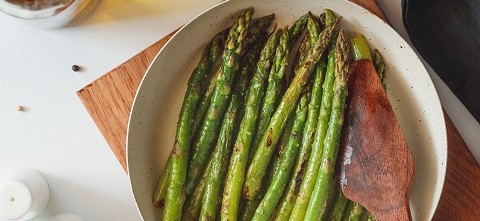[ad_1]
You’ve heard of probiotics, but what about prebiotics?
Probiotics can grab attention these days and save space on store shelves.
But if we want them to do their best and keep us healthy, we have to be careful what we feed them.
This is where prebiotics come in.
“They’re so important,” said Krista Gast, dietitian and health and wellness coach with Corewell Health Lifestyle Medicine Program.
The two elements combine to create a healthy gut microbiome, which in turn supports our digestion, immune system, physical and mental health.
Gast explained how the role of the gut microbiome affects our health and suggested foods that can help keep it in top shape.
Support your immune system
“Prebiotics is an umbrella term that encompasses several things,” she said.
It’s mostly plant foods with fiber, but it also includes resistant starch or fermented foods, as well as healthy fats.
“There is an ecosystem that lives in our gut. There are easily 90 trillion microbes,” Gast said. “It’s pretty amazing.”
These microbes, the beneficial bacteria called probiotics, digest and ferment the prebiotics.
They produce short chain fatty acids, also called postbiotics.
“Postbiotics are very anti-inflammatory,” Gast said. “Seventy percent of our immune system lives just on the other side of our gut wall.”
The gut plays a crucial role in regulating the immune system, helping it to be active enough to fight infection but not overactive, which can lead to autoimmune disease.
Anti-inflammatory postbiotics also suppress pathogenic bacteria, called bad bacteria, in the gut.
A diet high in processed foods and low in fiber, on the other hand, allows disease-causing bacteria to thrive.
brain stimulation
Between the brain and the intestine runs the vagus nerve, like a highway that allows constant communication in both directions.
The gut microbiota plays an important role in the production of hormones, including serotonin, known as the feel-good hormone.
“Up to 90% of serotonin is produced using the gut microbiome,” she said. “When our guts aren’t working properly, we can see a change in our ability to respond to stress. This can also impact depression and anxiety.
Short-chain fatty acids created in the gut can cross the blood-brain barrier and support brain function.
Researchers are studying the impact of the gut microbiome on cognition and even the development of chronic diseases like Alzheimer’s disease.
“It may be another thing in our toolbox to prevent chronic disease,” Gast said.
Fill up on fiber
Some fibers are insoluble, they add bulk to the stool and help keep the digestive system moving.
For prebiotics, look for foods with soluble fiber. Good sources include:
- Onions
- Garlic
- asparagus
- Beans and legumes
- Cruciferous vegetables like broccoli and cauliflower
- Leafy greens
- Whole grains
- Fruits, including apples and berries
Jerusalem artichokes, also called Jerusalem artichokes, are another rich source of prebiotic fiber. They look a bit like ginger root and can be roasted like potatoes.
But if you try Jerusalem artichokes, Gast advises doing it slowly. “If you’re not used to them, they can cause digestive upset,” she said.
In general, Gast suggests increasing the fiber content of your diet “low and slow.” This is especially true for people with constipation or inflammatory bowel disease.
Foods that are more gut-friendly
Fermented foods, including:
- Sauerkraut
- Kimchi
- Kombucha
- Yogurt and kefir with live cultures
Foods containing omega-3 fatty acids also feed probiotics. Good sources include:
- Chia seeds
- Linseed
- Nut
Resistant starches also feed the good bacteria in the gut. These are carbohydrates that resist digestion in the small intestine and ferment in the large intestine, acting as prebiotics.
Examples include:
- green bananas
- Potatoes cooked, cooled and reheated
- Rice cooked and cooled
More the merrier, the merrier
Gast avoids labeling a plant as a “superfood”.
Instead, she suggests including a wide variety of fiber-containing plants.
“One of the biggest indicators of a healthy, optimal gut is the diversity of plants entering our gut microbiome,” Gast said.
Consider tracking the plant foods you eat for a week and aim for a rich variety.
“Herbs and spices matter too,” she said. “They have really powerful antioxidants that microbes love.”
Researchers have found that people who eat 30 unique plant foods in a week have much more diverse gut microbes than those who eat just 10.
[ad_2]
Source link
